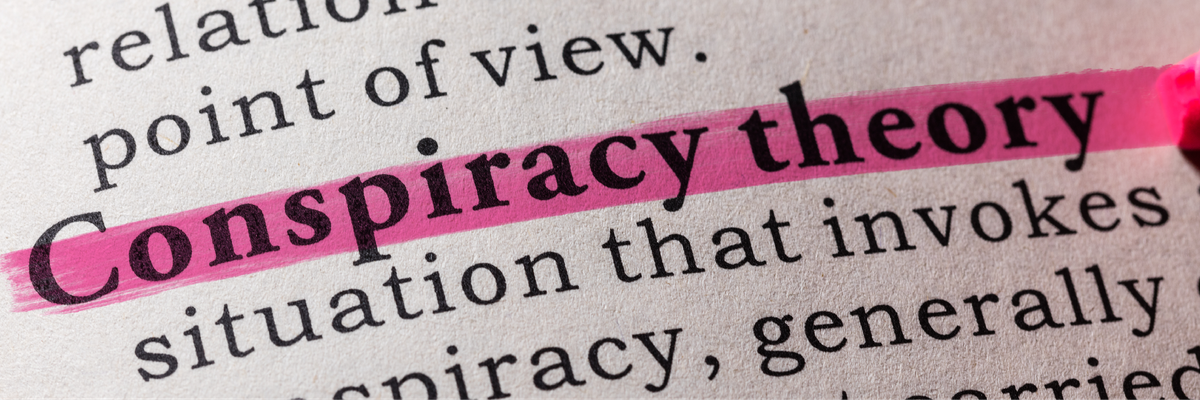Research from the YouGov-Cambridge Globalism Project shows that Britons are among the least likely to believe many global conspiracy theories
Research from the 2020 YouGov-Cambridge Globalism Project reveals just how widespread belief in some common conspiracy theories is. The survey took place in the summer of 2020 and interviewed more than 22,000 people in 21 countries.
Where do people believe the conspiracy theory that the United States government was involved in the 9/11 attacks?
The fallout of the 9/11 attacks survives to the present day. People continue to ask questions about what really happened that day, spawning conspiracy theories that the US government was somehow involved in, or knew of, the attacks before they happened. This conspiracy is most widely believed in Turkey, where over half of Turkish people (55%) think this conspiracy is “definitely” or “probably” true.
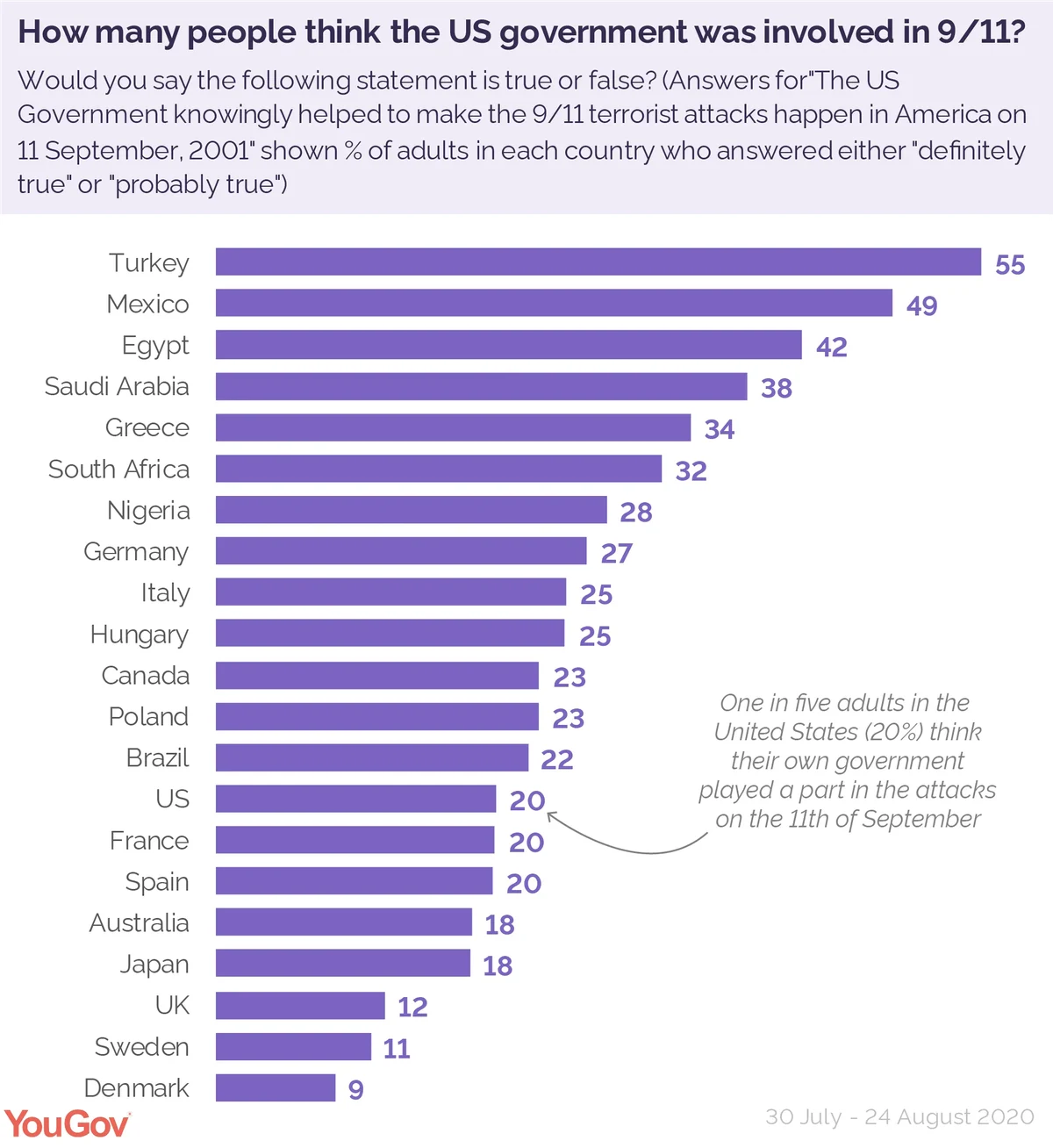
Across the border from the United States in Mexico, nearly half of Mexican adults (49%) think the United States government was involved that day. In Saudi Arabi, where Osama Bin Laden was born, 38% of adults think this conspiracy is true.
In the United States itself one in five Americans (20%) believe their government was involved, as do one in five French and Spanish people (20%). Elsewhere, Britons (12%) are among the least likely to believe the United States government were involved in the attacks.
Where do people believe the conspiracy theory that Donald Trump’s team worked with the Russian government during the 2016 presidential election?
Another conspiracy theory embedded in United States politics is that President Trump’s election team knowingly worked with the Russian government during the 2016 presidential election campaign against Hillary Clinton – something held to be “definitely” or “probably” true by 46% of Americans.
America’s neighbours are even more likely to think there was collusion, at 61% in Canada and 58% in Mexico. So too do a majority of people in many western countries, including 57% of Danes, 56% of Spaniards and Germans, and 55% of Britons.
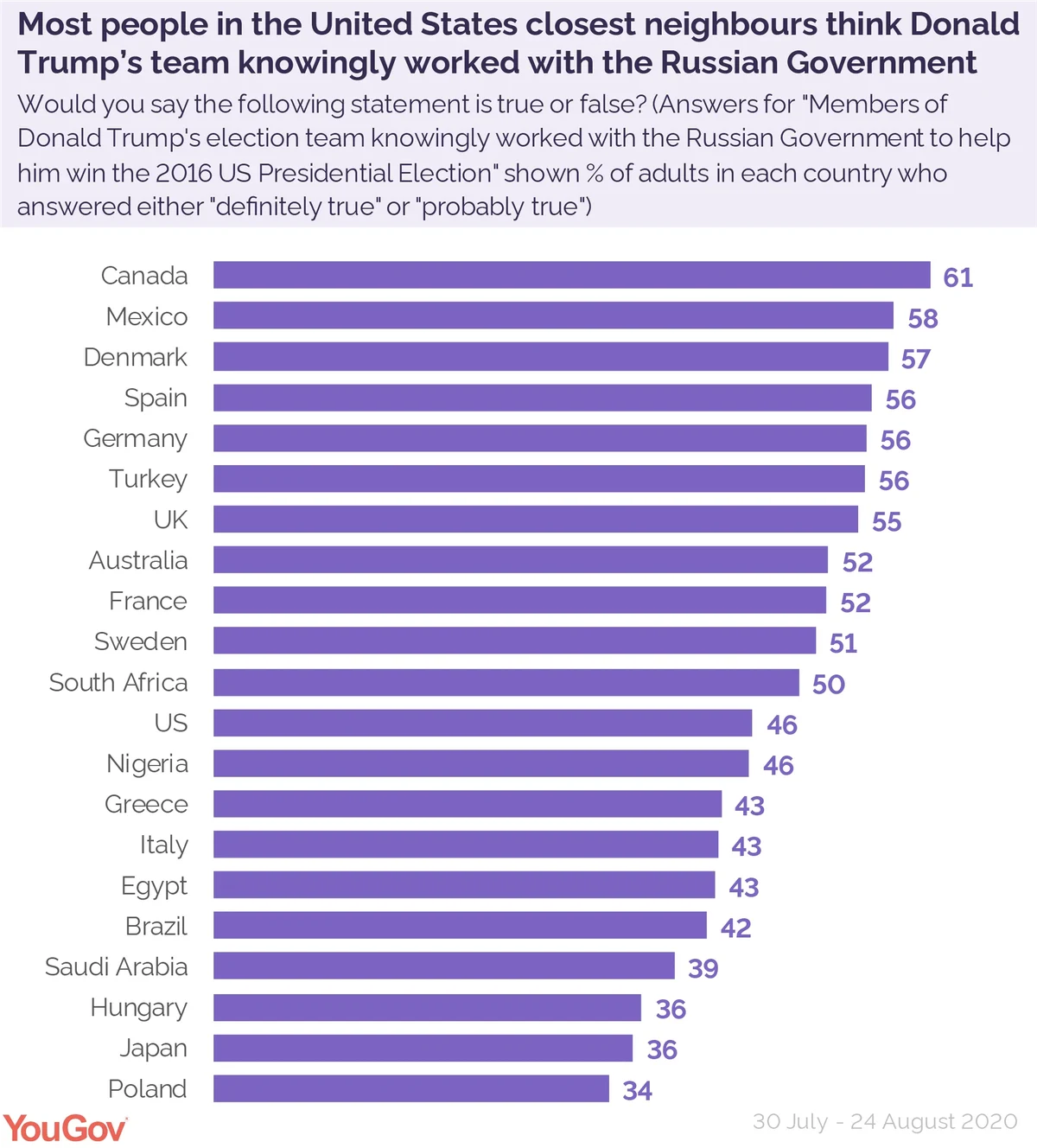
The theory is least popular among the Polish, with only 34% of people in Poland believing Trump colluded with the Russian government.
Where do people believe the conspiracy theory that pharmaceutical companies are hiding the harmful side effects of vaccines from the public?
Uptake of the various COVID-19 vaccines will be essential in getting the virus under control, but across the world many people believe potentially harmful side effects of vaccines are kept hidden from the public.
This belief is most likely to be held by people in South Africa, where 57% think rumours that side effects of vaccines being hidden are “definitely” or “probably” true. Similar numbers of people in Nigeria (55%), Turkey (48%), and Egypt (45%) also believe vaccines have hidden side effects.
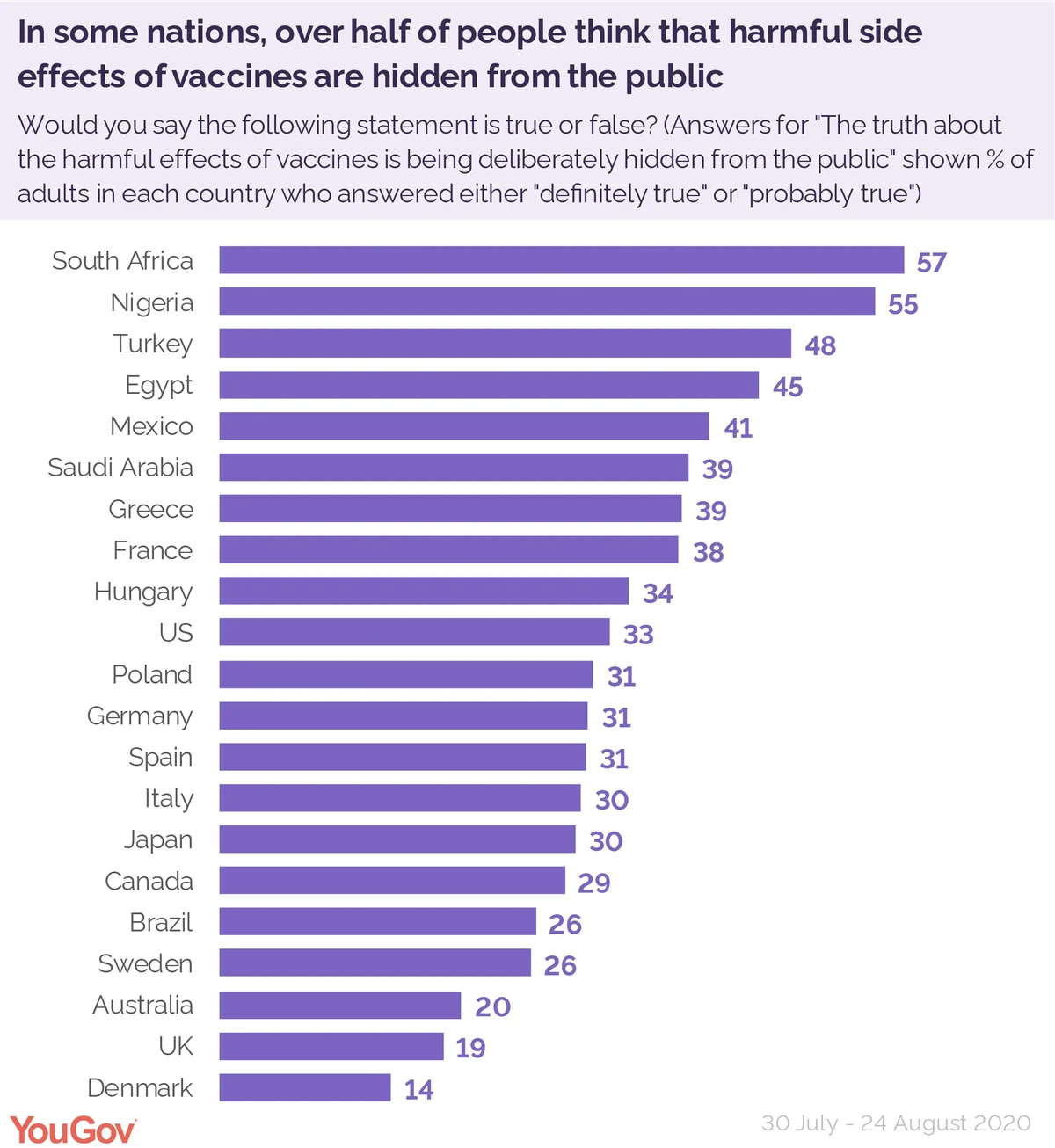
Greece (39%) and France (38%) are the European nations with the highest proportion of people who also believe this particular conspiracy, compared to a third of people in the United States (33%) who share this view. Among Britons, only 19% think that pharmaceutical companies are hiding side effects of vaccines, as do 14% of Danes who are the least likely to believe so.
Where do people believe the conspiracy theory that the world is run by a single secret group?
The idea that the world is secretly run from the shadows by persons unknown is perhaps the oldest conspiracy theory that the YouGov-Cambridge Globalism Project has asked about, stemming from the late 18th century. The idea is one that has been become engrained in the arts and popular culture, however for many people it’s a very real prospect.
The majority of Nigerians (78%) think that the idea of the word being run behind the scenes is either “definitely” or “probably” true – as do 68% of South Africans. Over half of people in Mexico (59%), Turkey (57%), Greece (56%), Spain (55%), and Egypt (55%) all believe this shadowy cabal to be true.
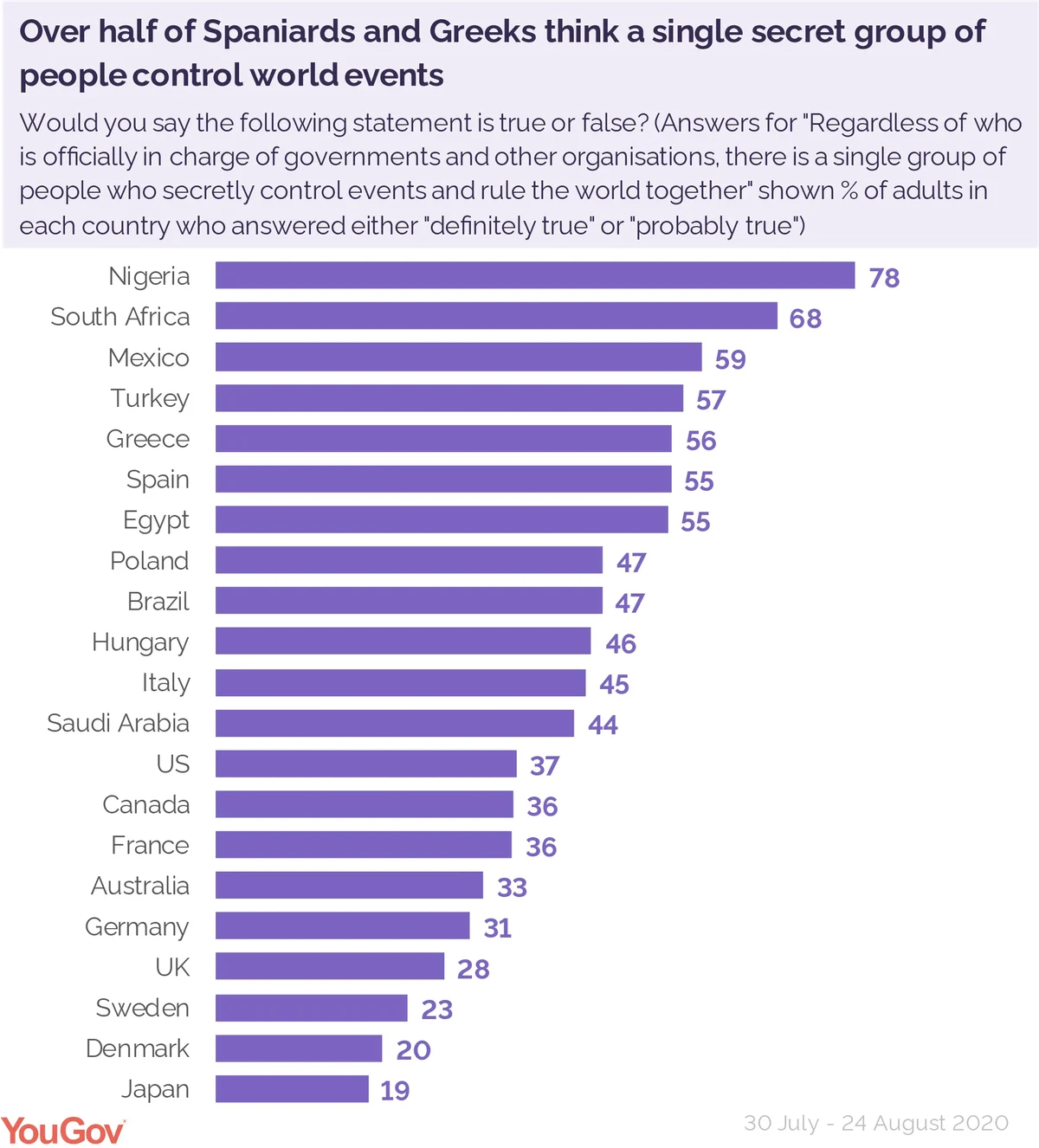
Elsewhere, over a third of people in the United States (37%) and Canadians (36%) believe this to be true. Just over a quarter of Britons (28%) agree, compared to 23% of Swedes and 20% of Danes. The Japanese (19%) are the least likely to believe the world is run from the shadows.
Where do people believe the conspiracy theory that climate change is a hoax?
Climate change and global warming being a hoax is one of the lesser-believed conspiracy theories with an average of 22% of people across the countries polled believing it to be true. In Nigeria, the most likely nation to think so, only 31% of people believe this to be either “definitely” or “probably” true. In the United States, where climate change is heavily politicised, 27% of people think that it being a hoax made to deceive people is true, the most of any of the western nations surveyed.
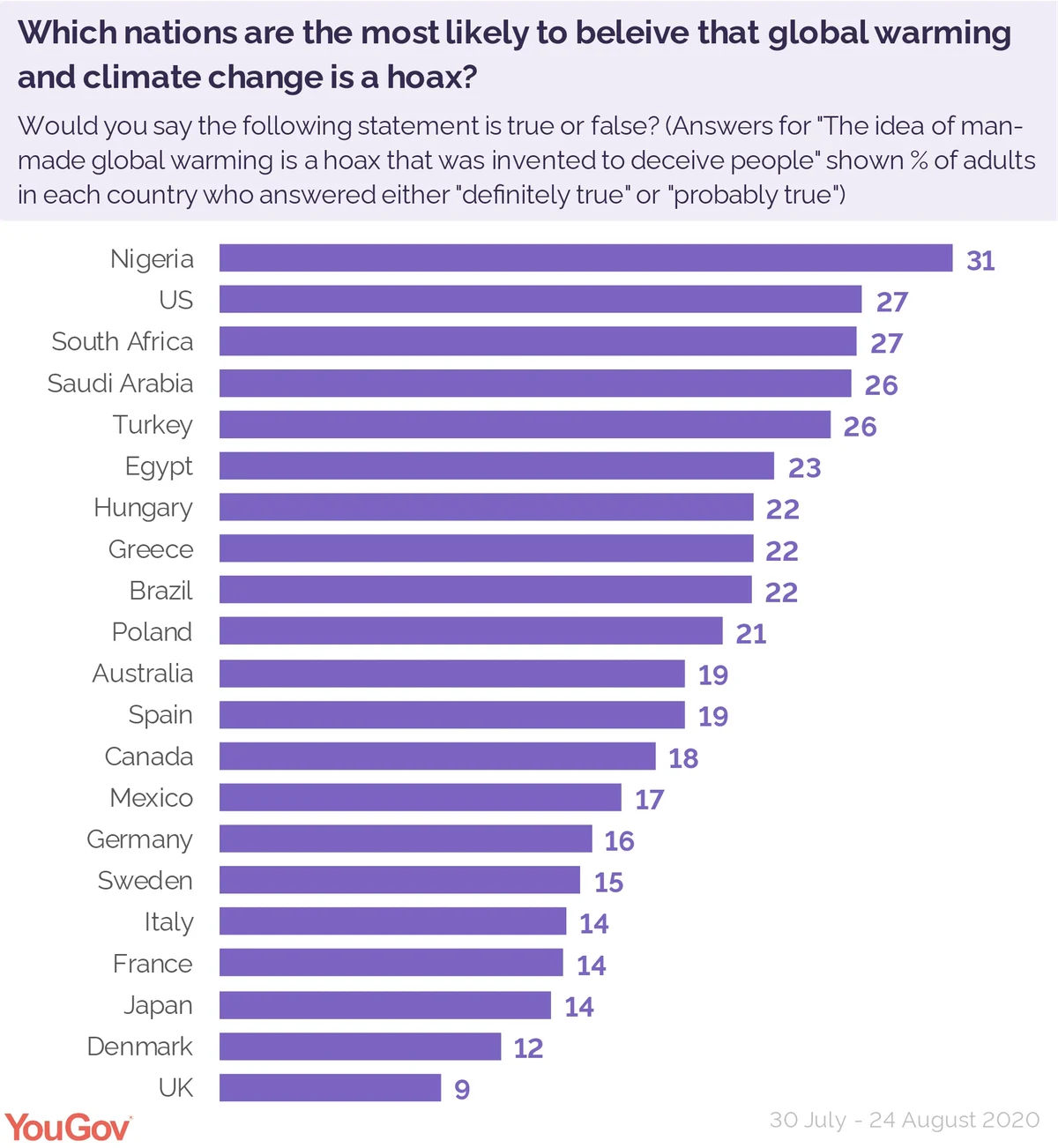
The most likely Europeans to believe this conspiracy theory at the Hungarians and the Greeks, 22% of both believe this to be true. Britons are the least likely to believe in this conspiracy, with only 9% thinking that climate change and global warning are fiction.
Where do people believe the conspiracy theory that humanity has made secret contact with aliens?
The idea that humanity has made contact with extra-terrestrial visitors hidden from public from view is another idea that has captivated people for years, from Roswell to the X-Files. But how many people actually think it could be true?
More than two in five people in Mexico (44%) think that humanity have secretive contact with aliens is “definitely” or “probably” true, closely followed by 43% of Nigerians.
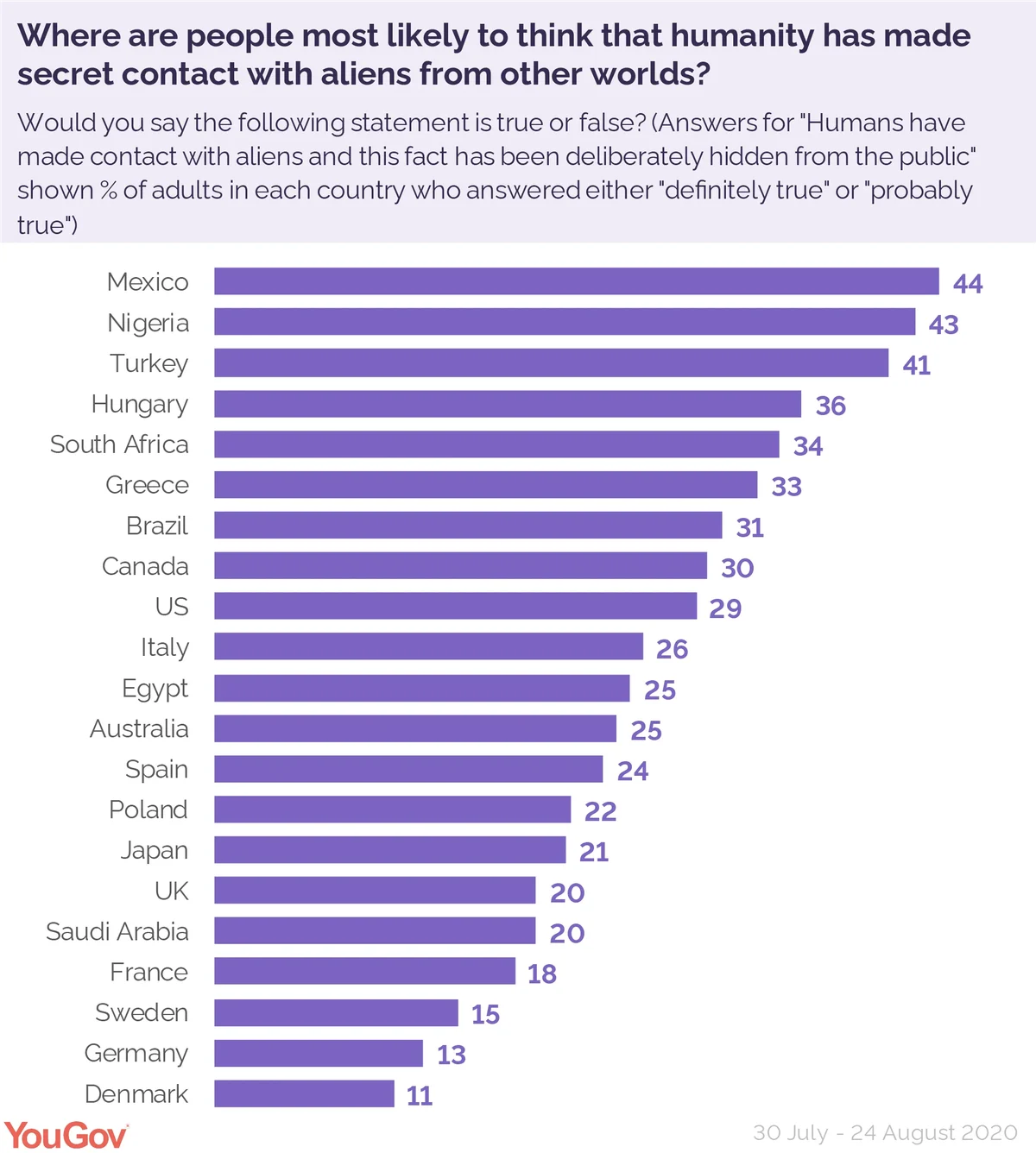
A third of Hungarians (36%) believe this to be true as well, the most likely Europeans to do so, followed by 34% of South Africans. In the United States, 29% of people think humanity has made secret contact with alien visitors, slightly behind 30% of Canadians who think the same. In Briton, one in five (20%) people think this is true.
Elsewhere in Europe, 18% of French people, 13% of Germans, and 11% of Danes all think humans and aliens have established contact.
Where do people believe the conspiracy theory that AIDS was spread on purpose?
Since its first recorded case in 1981, the Human Immunodeficiency Virus responsible for AIDS has continued to be one of the most prevalent and deadly pandemics, with around 1.7m new cases reported in 2019. However, there are some who believe that the virus was created and spread on purpose.
This conspiracy is believed to be either “definitely” or “probably” true by two in five Nigerans (42%), the most of any nation included in this survey. A similar number of Turks (40%) and South Africans (37%) think the same.
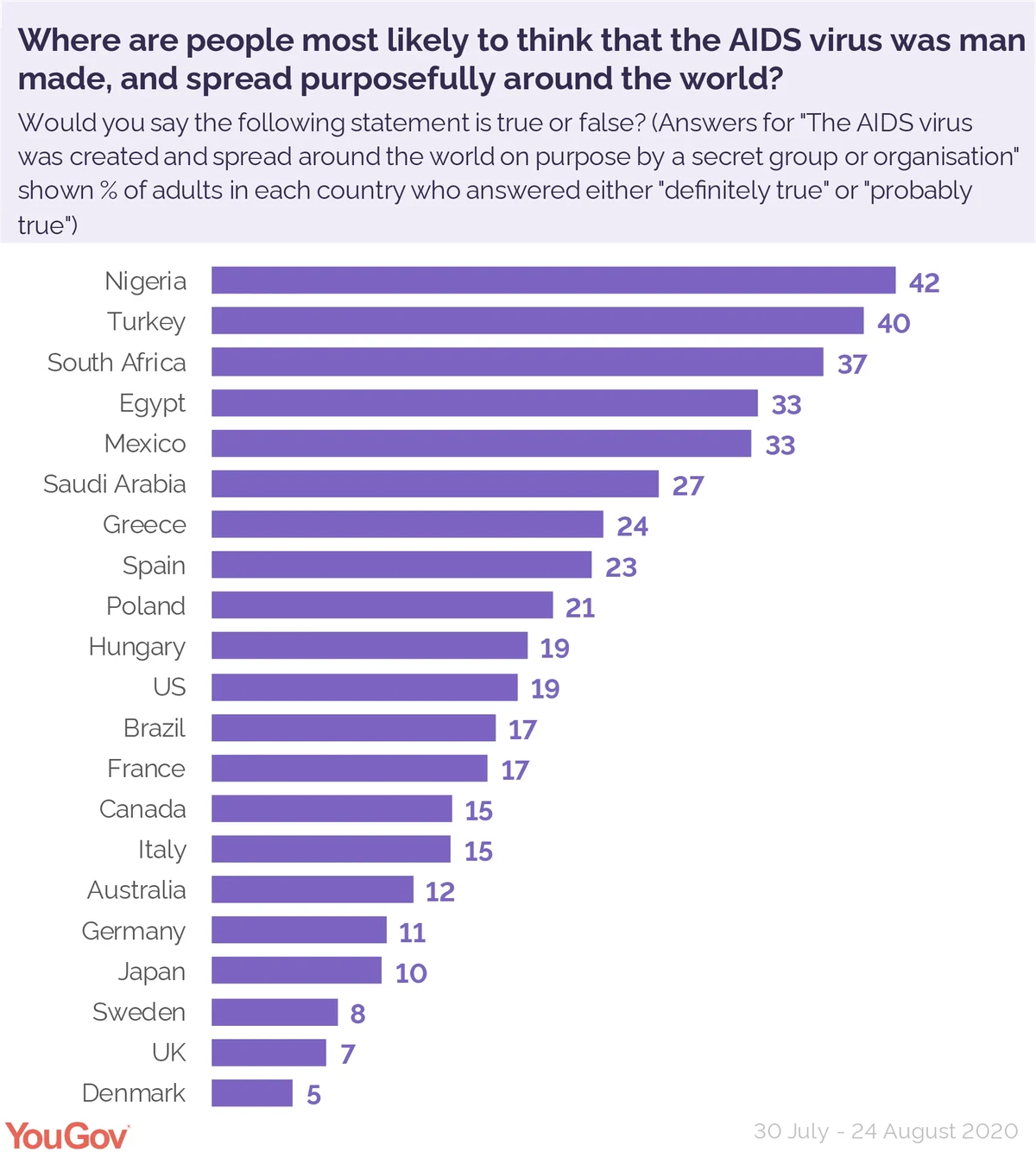
The Greeks (24%) are the most likely Europeans to believe this conspiracy, followed closely by Spaniards (23%) and Poles (21%).
Slightly fewer than one in five Americans (19%) think this is true, while in the UK only 7% believe it, second lowest to the Danes, at 5%.
Where do people believe the conspiracy theory that the 1969 moon landings were faked?
Landing two men on the surface of the moon and bringing them home safely using less computing power than a smartphone might seem an impossible feat – and many think it was. Three in Ten people in Mexico (31%) say the it is “definitely” or “probably” true that the Americans faked the 1969 moon landings, with a similar number of Turks and Saudi Arabians (28%) also doubting the claims.
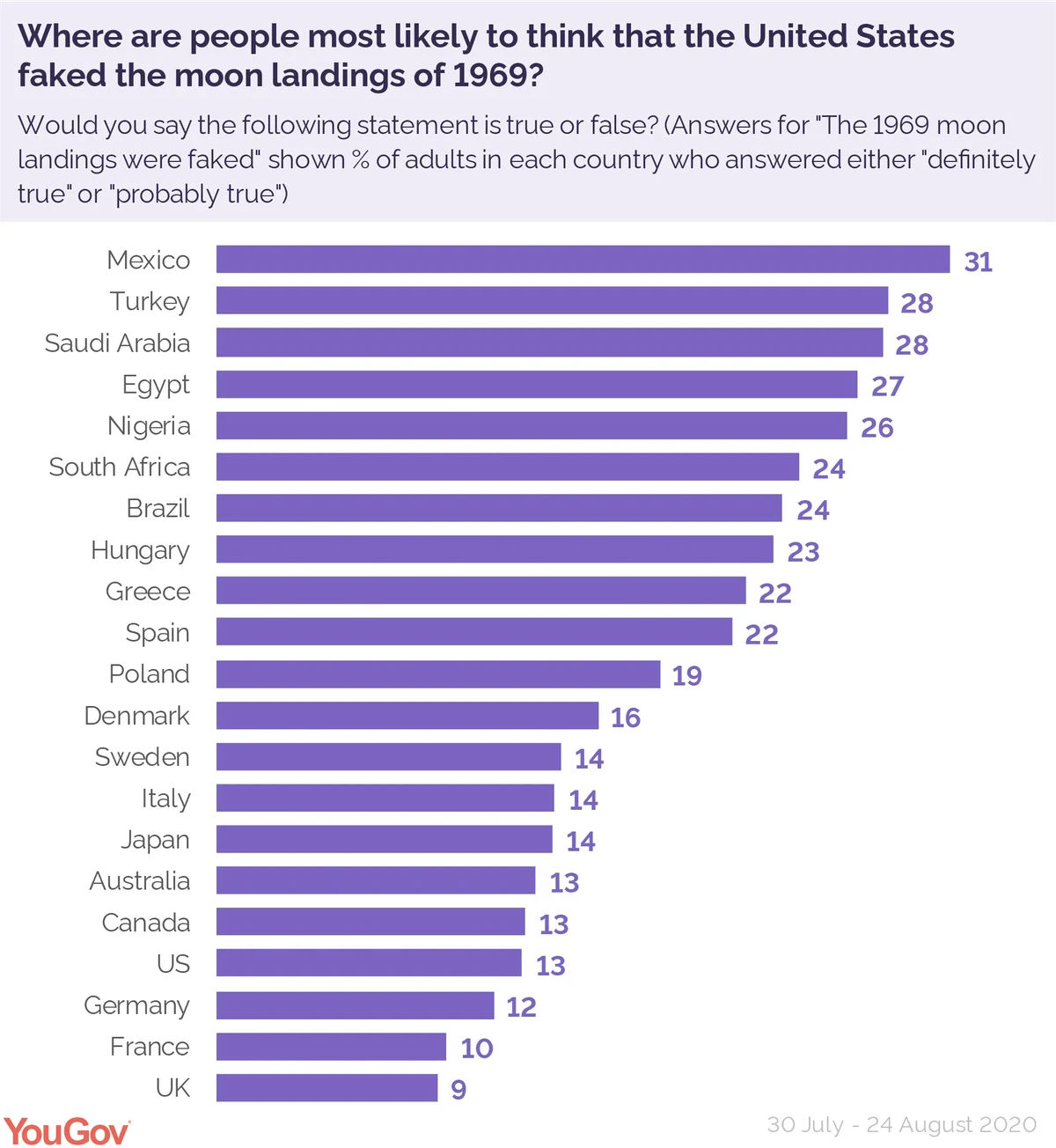
One in eight Americans themselves (13%) think the moon landings were staged, as do an identical proportion of Canadians.
In some European countries around one in five people doubt that Neil Armstrong truly made it to the Moon’s surface, including 23% of Hungarians, 22% of Greeks, 22% of Spaniards and 19% of Poles.
Once again, the Britons are the least likely to doubt the official record: only 9% of people in the UK say they think the United States faked their moon landings in 1969.
Learn more about the YouGov-Cambridge Globalism Project here
